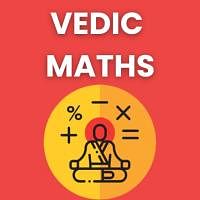Class 6 Exam > Class 6 Questions > What is vitamin what type of vitamin the exam...
Start Learning for Free
What is vitamin what type of vitamin the example of each and explain it?
Most Upvoted Answer
What is vitamin what type of vitamin the example of each and explain i...
What are Vitamins?
Vitamins are essential organic compounds that our bodies need in small amounts to function properly. They play a crucial role in various bodily functions such as metabolism, immunity, and overall health. There are 13 essential vitamins that are categorized into two groups: water-soluble vitamins and fat-soluble vitamins.
Water-Soluble Vitamins
1. Vitamin C: Also known as ascorbic acid, Vitamin C is a powerful antioxidant that helps boost the immune system, heal wounds, and maintain healthy skin. It is commonly found in citrus fruits, strawberries, and bell peppers.
2. B Vitamins: This group includes eight different vitamins such as B1 (thiamine), B2 (riboflavin), B3 (niacin), B6 (pyridoxine), B12 (cobalamin), folic acid, biotin, and pantothenic acid. These vitamins play a crucial role in energy production, nerve function, and red blood cell formation. They can be found in foods like whole grains, meat, dairy, and leafy greens.
Fat-Soluble Vitamins
1. Vitamin A: Vitamin A is essential for vision, immune function, and skin health. It can be found in foods like liver, eggs, and dairy products.
2. Vitamin D: Known as the sunshine vitamin, Vitamin D helps regulate calcium and phosphorus levels in the body, promoting healthy bones and teeth. It is primarily obtained through sunlight exposure and fortified foods like milk and cereals.
In conclusion, vitamins are vital nutrients that our bodies need to function properly. It is important to maintain a balanced diet rich in various vitamins to support overall health and well-being.
Vitamins are essential organic compounds that our bodies need in small amounts to function properly. They play a crucial role in various bodily functions such as metabolism, immunity, and overall health. There are 13 essential vitamins that are categorized into two groups: water-soluble vitamins and fat-soluble vitamins.
Water-Soluble Vitamins
1. Vitamin C: Also known as ascorbic acid, Vitamin C is a powerful antioxidant that helps boost the immune system, heal wounds, and maintain healthy skin. It is commonly found in citrus fruits, strawberries, and bell peppers.
2. B Vitamins: This group includes eight different vitamins such as B1 (thiamine), B2 (riboflavin), B3 (niacin), B6 (pyridoxine), B12 (cobalamin), folic acid, biotin, and pantothenic acid. These vitamins play a crucial role in energy production, nerve function, and red blood cell formation. They can be found in foods like whole grains, meat, dairy, and leafy greens.
Fat-Soluble Vitamins
1. Vitamin A: Vitamin A is essential for vision, immune function, and skin health. It can be found in foods like liver, eggs, and dairy products.
2. Vitamin D: Known as the sunshine vitamin, Vitamin D helps regulate calcium and phosphorus levels in the body, promoting healthy bones and teeth. It is primarily obtained through sunlight exposure and fortified foods like milk and cereals.
In conclusion, vitamins are vital nutrients that our bodies need to function properly. It is important to maintain a balanced diet rich in various vitamins to support overall health and well-being.
Attention Class 6 Students!
To make sure you are not studying endlessly, EduRev has designed Class 6 study material, with Structured Courses, Videos, & Test Series. Plus get personalized analysis, doubt solving and improvement plans to achieve a great score in Class 6.

|
Explore Courses for Class 6 exam
|

|
Similar Class 6 Doubts
What is vitamin what type of vitamin the example of each and explain it?
Question Description
What is vitamin what type of vitamin the example of each and explain it? for Class 6 2024 is part of Class 6 preparation. The Question and answers have been prepared according to the Class 6 exam syllabus. Information about What is vitamin what type of vitamin the example of each and explain it? covers all topics & solutions for Class 6 2024 Exam. Find important definitions, questions, meanings, examples, exercises and tests below for What is vitamin what type of vitamin the example of each and explain it?.
What is vitamin what type of vitamin the example of each and explain it? for Class 6 2024 is part of Class 6 preparation. The Question and answers have been prepared according to the Class 6 exam syllabus. Information about What is vitamin what type of vitamin the example of each and explain it? covers all topics & solutions for Class 6 2024 Exam. Find important definitions, questions, meanings, examples, exercises and tests below for What is vitamin what type of vitamin the example of each and explain it?.
Solutions for What is vitamin what type of vitamin the example of each and explain it? in English & in Hindi are available as part of our courses for Class 6.
Download more important topics, notes, lectures and mock test series for Class 6 Exam by signing up for free.
Here you can find the meaning of What is vitamin what type of vitamin the example of each and explain it? defined & explained in the simplest way possible. Besides giving the explanation of
What is vitamin what type of vitamin the example of each and explain it?, a detailed solution for What is vitamin what type of vitamin the example of each and explain it? has been provided alongside types of What is vitamin what type of vitamin the example of each and explain it? theory, EduRev gives you an
ample number of questions to practice What is vitamin what type of vitamin the example of each and explain it? tests, examples and also practice Class 6 tests.

|
Explore Courses for Class 6 exam
|

|
Suggested Free Tests
Signup for Free!
Signup to see your scores go up within 7 days! Learn & Practice with 1000+ FREE Notes, Videos & Tests.

























